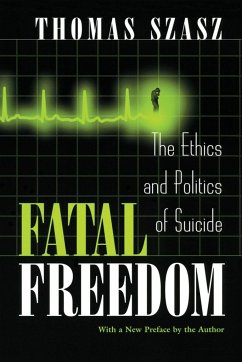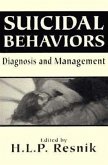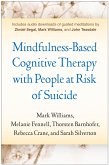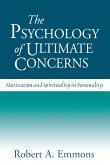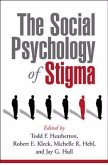In this thoughtful and compelling analysis, the world's foremost critic of coercions of the psychiatric institution defends a patient's right to choose life or death. Fatal Freedom is an eloquent defense of every individual's right to choose a voluntary death. By maintaining statutes that determine that voluntary death is not legal, Thomas Szasz believes that our society is forfeiting one of its basic freedoms and causing the psychiatric medical establishment to treat individuals in a manner that is disturbingly inhumane. Society's penchant for defining behavior it terms objectionable as a disease has created a psychiatric establishment that exerts far too much influence over how and when we choose to die. In a compelling argument, which clearly and intelligently addresses the most significant ethical issues of our time, Szasz compares suicide to other practices that historically began as sins, became crimes, and then mental illnesses. This book answers some of the most significant ethical questions of our time: Is suicide a voluntary act or an act of mental illness? Should physicians be permitted to prevent it? Should they be authorized to abet it?
Hinweis: Dieser Artikel kann nur an eine deutsche Lieferadresse ausgeliefert werden.
Hinweis: Dieser Artikel kann nur an eine deutsche Lieferadresse ausgeliefert werden.

